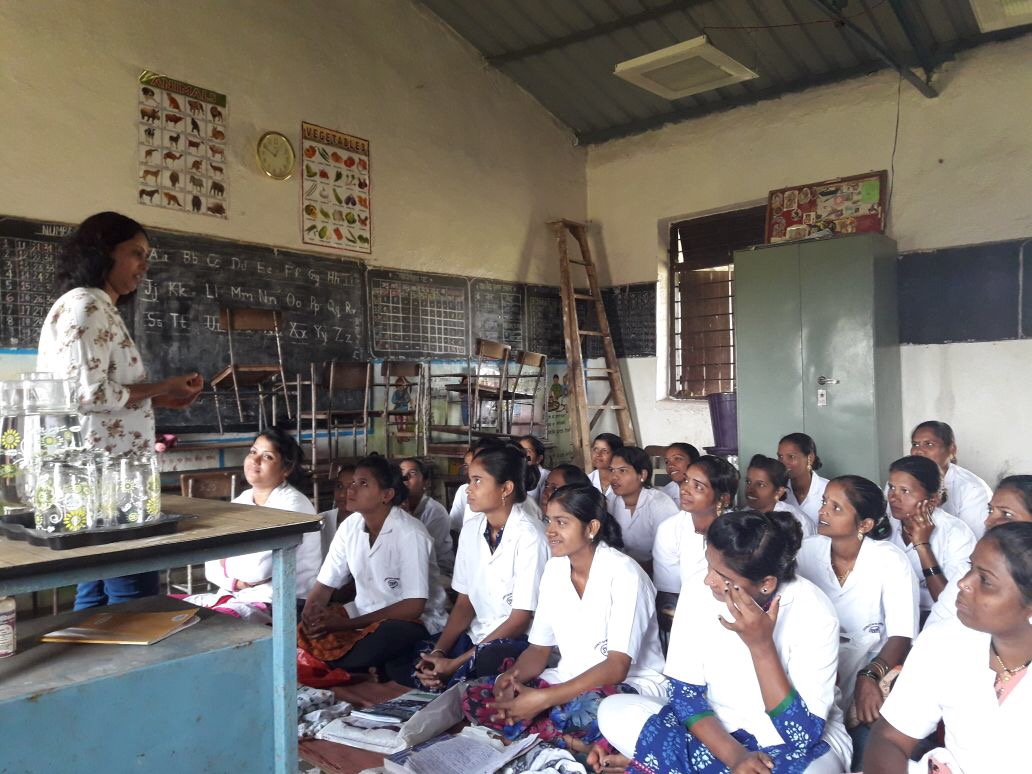World Bank has officially recognized India as the sixth largest economy. What does the coveted position imply for India’s informal sector and their chances of getting formalized? Being the economic nerve center of India, employing 83% of India’s workforce, this sector is in dire need of recognition and certification of knowledge and skills to improve productivity, earn better wages and grow up the socioeconomic ladder. Let’s look at some typical cases and understand why schemes like Recognition of Prior Learning (RPL) could help with certification.
Suresh had completed his 10th standard when his father passed away. With two younger sisters and a brother to look after, his mother asked him to join his uncle, a painter, for painting jobs. Initially hesitant, he quickly picked up the skills and learnt on-the job from his uncle. He now knew about different kinds of paints, brands, quality, pricing, how to judge the quantity of paint required, how to mix, what brushes to use and regarding surfaces such as wood or cement of metal etc. Within a year, he started taking up independent projects in his area and was able to help support his family. But, the lack formal qualification of his skills and experience has hindered his career growth.
Anand, a school dropout, got into carpentry and started helping father in the ancestral trade. Under his father’s guidance, he quickly learnt to take up projects and help his father deliver faster and earn more money. Even though Anand has varied experience and latest knowledge, he is unable to set up his dream studio in a big city and scale up his business in woodworks. This is because he is unable to demonstrate his learning formally and gain confidence to apply for a bank loan.
Seema is a Science Graduate and she picked up make-up and hair dressing skills as a hobby and perfected her skills by watching YouTube videos. After her graduation she set up a small beauty parlour and started earning to support herself. But she was not able to apply for Advanced Training in Beauty since her skills and knowledge were acquired informally.
People like Suresh, Anand and Seema could gain a lot by acquiring RPL certification.

Informal to formal movement through RPL
RPL is an effective means of formally certifying prior learning and enabling the movement of workers into a formal system. RPL involves identification, assessment and acknowledgement through Aadhaar linked certification made available on Labour Market Information System (LMIS). It is implemented through multi-stakeholder engagement with participation from the Ministry of Skill Development and Entrepreneurship (MSDE), and Sector Skill Councils (SSCs).
Why certification through RPL is critical and what it involves:
RPL is primarily a form of skills assessment that aligns the competencies of the un-certified workforce to the standardized National Skills Qualification Framework (NSQF). It recognizes and certifies a person’s previous learning and work experience as per established standards in the industry. Hence, it is helpful in formalizing the knowledge and skills of informal workforce, besides enhancing their mobility through virtual skill certificate which could form a key component of the Skills Passport.
The concept of portability of standards through RPL certification entitles the workers to apply for higher learning and opens up many avenues for utilizing the credits acquired through the certificate for other purposes. This includes access to finance, formal acceptance of skills in the labour market and a path towards better wages and salaries as a certified tradesperson. For the migrant workforce, the certificate could be a virtual evidence of their competencies, enabling them anytime-anywhere access using biometrics/Aadhaar.
How RPL can positively impact the informal sector
RPL certification enables the creation of a sustainable work ecosystem, with improvement in quality and productivity. By imparting skill-based training, assessing the skills and certifying, RPL brings equity among the formally trained and informally trained workforce. Besides improving livelihood opportunities for the workforce, the self-employed can also make use of the credits they gain through certification for availing loans under various schemes to fund their own businesses and create more jobs to build a stronger economy.
This is a guest article by Rajesh A. R, Chairman, LabourNet Services India Limited.
The views expressed above belong to the author. NSN does not subscribe to the views and opinions expressed in the article.
Subscribe to our YouTube channel for more updates:
Subscribe on YouTube




Is there any advance diploma course for diploma in electrical engineer candidate???
I am looking for RPL courses in my relevant field.
RPL me registration Karaya hai t.o. training ka lekin exm. Nhi de paya aab kya Karna hoga
RPL ತರಬೇತಿ ಪಡೆದವರಿಗೆ ಪ್ರಮಾಣ ಪತ್ರವನ್ನು ಯಾವಾಗ ಕೊಡುತ್ತಿರಿ ಹಾಗೂ ಒಂದು ಕೇಂದ್ರದಲ್ಲಿ ತರಬೇತಿ ಪಡೆದ ಒಟ್ಟು ಶಿಕ್ಷಾರ್ತಿಗಳ ಪಟ್ಟಿ ಯಾವ ವೇಭ್ ಸೈಟ್ನಲ್ಲಿ ದೊರೆಯುತ್ತದೆ.
i am passed iti.wire-man tread in 1992.i get rpl certificate.what i do ?
Hi Kulin, for details about RPL please visit PMKVY website or their PMKVY center